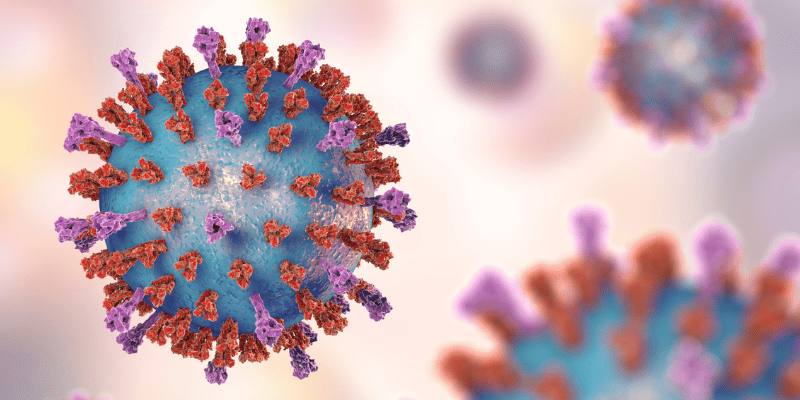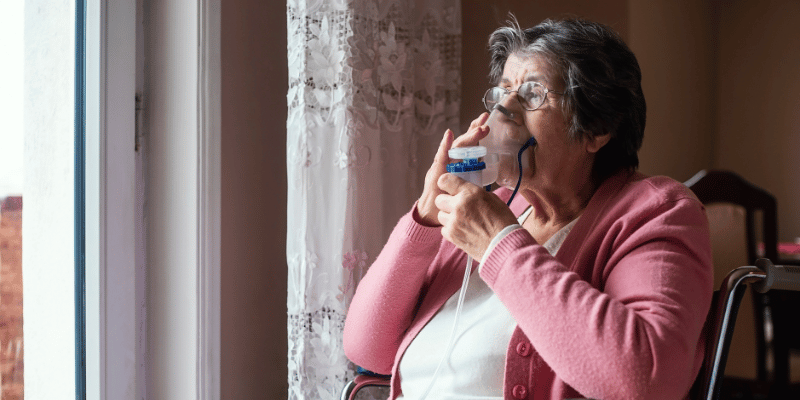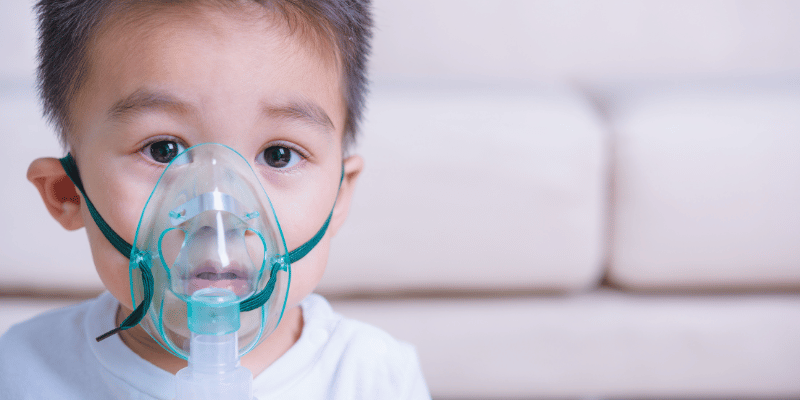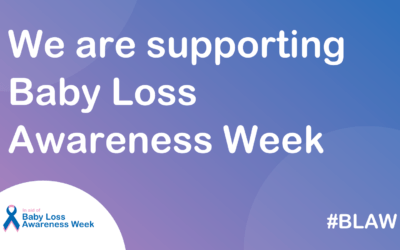Respiratory Syncytial Virus (RSV) is a common virus that can affect people of all ages. It is particularly serious in infants and the elderly, leading to severe respiratory infections and is a major cause of hospitalisations in these age groups.
In June 2023, the Joint Committee on Vaccination and Immunisation (JCVI) recommended an immunisation programme to protect both infants and older adults against RSV in the UK. The JCVI highlighted the significant burden of RSV disease in the UK, as well as the impact it has on NHS services throughout the winter months. There is also concern that evolving RSV infection patterns may result in unpredictable future epidemics, highlighting the need for an established vaccination programme to be implemented.
Whilst we are still awaiting further recommendations and guidance on how any programme will be rolled out in the UK, this news brings welcome hope in the next steps in providing crucial protection to high-risk populations. Here we will delve into more details about RSV and the latest on the vaccine recommendations in the UK.
What is RSV?

RSV is a very common and highly contagious virus that usually causes mild, cold-like symptoms such as a runny nose, cough, sneezing and fever. It is spread in the same way as a common cold, through sneezing, coughing or touching of surfaces contaminated by the virus. For most, RSV causes a mild respiratory illness. However in infants, young children, the elderly and those with compromised immune systems or co-morbidities, it can lead to severe respiratory illnesses such as bronchiolitis and pneumonia. For some, particularly infants under the aged of one years old and the elderly, RSV infections can be life-threatening.
What is the treatment for RSV?

There is no specific treatment for RSV. Those who have severe infections may require hospitalisation for management of symptoms using supportive measures including oxygen supplementation, intravenous fluids, feeding support or ventilation as needed.
The Burden of RSV in the UK
In the UK, RSV is responsible for a significant burden on our healthcare systems, with many infants, young children and elderly individuals requiring hospitalisation each year. The RSV seasons runs through the winter months, peaking in December when other respiratory borne diseases such as influenza and COVID-19 are also rife, placing significant pressure on the NHS.
It is thought that globally, RSV infects up to 90% of children within the first 2 years of their life and frequently re-infects older children and adults. According to research, in infants, children and adolescents, RSV is estimated to account for approximately 450,000 GP appointments, 29,000 hospitalisations and 83 death per year in the UK. RSV is believed to be one of the main causes of hospitalisation and infant deaths worldwide. It is the second most common cause of infant mortality in certain low-income nations, after malaria. Severe RSV infections in early childhood may have also long term health consequences, by preventing infections a vaccine can potentially reduce the risk of these issues occurring.
RSV is also one of the leading causes of pneumonia in older adults. According to modelling data, the RSV virus results in 14,000 hospitalisations, 175,000 GP visits and 8,000 deaths each year in those who are over the age of 60 in the UK. Some studies have shown that the burden of RSV disease may be even greater than that of influenza in hospitalised older adults during a typical winter season. It is also acknowledged that the prevalence of RSV infections in adults may be substantially higher than previously recognised, because many older patients are not routinely checked for respiratory infections in the same way that children are.
What are the current recommendations for RSV immunisation in the UK?
The RSV immunisation programme is currently only available in the UK to a very limited number of infants who are known to be at the highest risk of serious complications. Currently, the NHS provides an injection known as Palivizumab (Synagis©), which is a monoclonal antibody injection that provides the infant with passive immunity. Unlike most vaccinations, they do not produce active immunity, so in order to maintain a high level of protection, they must be repeated every month, typically between October and February (up to five times). Due to the extremely high costs and monthly injection requirement, only a very small percentage of infants qualify for this, leaving many others at risk of infection.
JCVI recommendations for a UK RSV vaccine programme

In June 2023, the JCVI recommended an expansion to the UK RSV vaccination programme to older adults aged 75 years and over and infants with further details announced on this in September 2023. This came about following a review of evidence from the manufacturers on the efficacy, safety and duration of protection of a number of RSV immunisations and taking into consideration the significant burden of RSV illness in the UK population.
The report currently favours a one off campaign that would initially target several age groups, followed by a routine programme for adults turning 75 years old. Further consultation between the NHS, the Department of Health and Social Care, and the UK Health Security Agency (UKHSA) is required to determine delivery and how it will be implemented based on vaccine approvals.
GSK vaccine: Arexvy
In July 2023, the Medicines and Healthcare products Regulatory Agency (MHRA) approved GSK’s adjuvanted PreF protein RSV vaccine, Arexvy©, for use in the prevention of lower respiratory tract disease (LRTD) caused by RSV in those aged 60 years and over. This is the first RSV vaccine for older adults to be authorised for use in the UK.
Trials have shown Arexvy© has a high level of efficacy, having been found to be 82.6% effective in protecting against LRTD and 94.1% effective at preventing severe infection. Additionally, Arexvy© has been demonstrated to be well tolerated, with the most frequently reported side effects include headaches, fatigue, mild to moderate discomfort at the injection site and muscle and joint pain.
Whilst the vaccine is not yet available through the NHS, some private pharmacy companies in the UK have started to offer this to their patients.
What other RSV vaccines are available?
There are two other vaccinations that are in development with potential licencing timelines for end of 2023 to early 2024 in the UK. Over the coming months we should hopefully hear more news about these.
Abrysvo©, a Pfizer prefusion F vaccine, has been approved in the United States (US) initially for those who are over 60 but more recently also as a maternal vaccine. It is currently recommended in the US for pregnant women who are between 32-36 weeks gestation with the aim to protect infants from LRTD and severe LRTD due to RSV. Vaccination trials have demonstrated it was 82% effective in preventing severe diseases in newborns during their first three months of life and 70% effective during their first six months.
The Moderna PreF mRNA-1345 vaccine, which is still awaiting licencing in the US, demonstrated vaccine efficacy of 83.7% against RSV lower respiratory tract disease and was also generally well-tolerated, with no safety concerns highlighted. Further details are still to be announced on the use of both of these vaccines in the UK by the MHRA.
Nirsevimab – an alternative monoclobal antibody
Sanofi and AstraZeneca have also developed Beyfortus® (Nirsevimab), a new long-acting monoclonal antibody (MAB) for passive immunisation against RSV infection and disease. The MHRA approved Nirsevimab in November 2022. It was recommended at the February 2023 JCVI meeting that going forward Nirsevimab, which has an extended half-life should replace Palivizumab for the current eligible cohort. This is because Nirsevimab only requires one dose per season, whereas Palivizumab requires monthly doses.
RSV vaccine use for infants/maternal programme

The JCVI is currently considering how an infant vaccination programme might look, including whether infants will be vaccinated using passive immunisation (monoclonal antibody) or whether maternal vaccines will be used. This is likely to be subject to the approval of the Pfizer vaccine in the UK and the recommendations that follow. However, the JCVI has stated that any programme should ideally be a “year round offer” to ensure a high uptake because it is less complex and resource intensive to deliver than running season campaigns. However, a seasonal campaign is still a possibility.
In summary
The rollout of an RSV vaccine campaign in the UK holds the promise of reducing the burden of RSV infections on our healthcare systems by preventing serious infections and improving the outcomes for vulnerable and at risk individuals. This in turn can help to free up healthcare resources and make substantial cost savings during the winter months when resources are already stretched thin. Widespread vaccination against RSV may also help to contribute towards herd immunity, protecting those who cannot be vaccinated, such as infants too young to receive the vaccine.
Going forward, as healthcare professionals we will play a significant part in the prevention of RSV-related illnesses and complications, particularly among the most vulnerable members of the population. As we approach the winter months and begin to see RSV infections in our communities, we will eagerly await more information on the new vaccines and further guidance from the JCVI on how any potential RSV vaccination programme will look.




